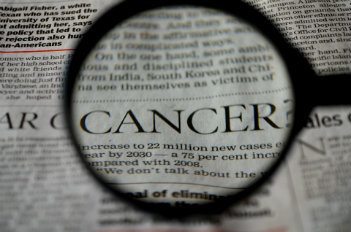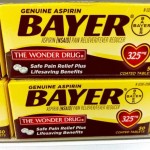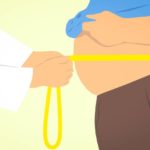Lowering The Risk Of Colorectal Cancer
Colorectal cancer is a killer cancer that infects parts of your large intestine and results in serious symptoms including blood in the stool, change in bowel movements and weight loss. Treatment is expensive just like any other cancer type. However, if you are a coffee drinker, then you have a reason to smile. Notions about coffee consumption being hazardous to your health are long gone. Why? A recent study shows that taking, at least, two cups of coffee per day reduces the risk of getting colorectal cancer. The risk of developing cancer reduced greatly when those who participated in the test took more servings of coffee each day.
Notions about coffee consumption being hazardous to your health are long gone. Why? A recent study shows that taking, at least, two cups of coffee per day reduces the risk of getting colorectal cancer. The risk of developing cancer reduced greatly when those who participated in the test took more servings of coffee each day.
Colorectal Cancer And Coffee Research Study
A research done at the University of Southern California examined 5,100 participants diagnosed with colorectal cancer within a six-month time-frame and an additional 4,000 with no signs of colorectal cancer to act as the control of the experiment. Carrying out the study involved daily consumption of boiled, instant, decaffeinated and filtered coffee and one could take other liquids as well. A questionnaire was also filled by the participants about other factors that may contribute to colorectal cancer. Other factors that were questioned included diet, physical activity, smoking and history of cancer in the family.
The report was then released by Stephen Gruber, MD, Ph.D., MPH, director of the USC Norris Comprehensive Cancer Centre. He confirmed that drinking coffee is associated with lowering the risk of colorectal cancer, and it keeps lowering the more you drink coffee. He is also the senior author of the study. Attesting to the introduction statement, data showed that moderate coffee consumption, once or twice in a day reduced the odds of developing colorectal cancer by 26%, of course adjusting for experienced risk factors. The risk continued to reduce up to 50% when the participants drank more than 2.5 servings of coffee each day. The type of coffee did not matter, whether it was caffeinated or not.
Stephen also concluded that caffeine did not matter in the coffee protective properties as it was the only responsible factor in the killer cancer reduction. Coffee has many elements that contribute to the reduction which explains the preventive measures. Polyphenol and caffeine are antioxidants which limit the potential cancer cells in the colon from growing. The roasting process, which contributes to the generation of melanoidin, causes its hypothesis to encourage colon mobility. Your body’s defence may be enhanced by diterpenes which contributes to preventing cancer by reducing oxidative damage.
Consuming Coffee Can Make A Difference
Regardless of the kind of coffee that you drink, levels of the good compounds per coffee serving vary depending on  the roast, bean, and brewing method. The results can be confirmed as true since a large population was used to convey the findings. Alongside colorectal cancer, consuming four or more cups in a day may provide protective measures to the consumers from gastrointestinal cancers, including cancer of the liver and other deadly diseases-diabetes being one of them. The results have given proof between coffee taking and odds of contracting colon, rectal, and colorectal cancer.
the roast, bean, and brewing method. The results can be confirmed as true since a large population was used to convey the findings. Alongside colorectal cancer, consuming four or more cups in a day may provide protective measures to the consumers from gastrointestinal cancers, including cancer of the liver and other deadly diseases-diabetes being one of them. The results have given proof between coffee taking and odds of contracting colon, rectal, and colorectal cancer.
This study is available on the issue of Cancer Epidemiology, Biomarkers & Prevention, on April 1, 2016, which is published by the American Association of Cancer Research Cancer Research. While this evidence gives you a smile finally as a coffee consumer, more research will be needed to advocate for consumption and its ability to reduce colorectal cancer.
Colorectal cancer is rated the third most common cancer and comes second to lung cancer as the leading cause of cancer deaths. It is diagnosed in both men and women in the US with about 4% and 5% of women respectively developing cancer in the colon during their lifetime. American Cancer Society estimates that 39,000 new cases of rectal cancer and 95,000 new cases of colon cancer were reported during 2016.
For most people, detection procedures recommend screening to start at age 50; however, with the alarming numbers of those below 50 diagnosed with colon cancer, calls for everyone to be screened and be aware of the possible risks and early warning signs.






